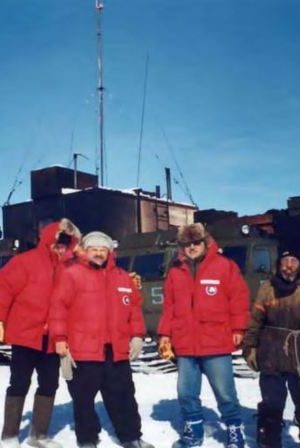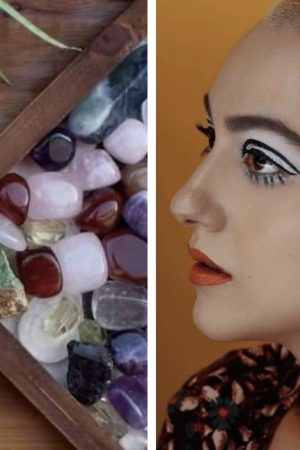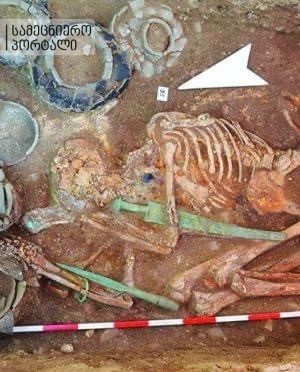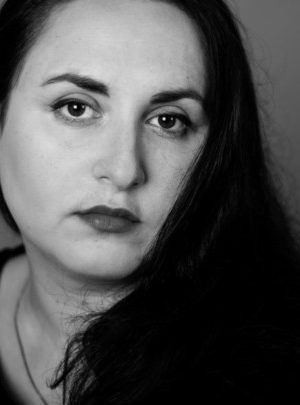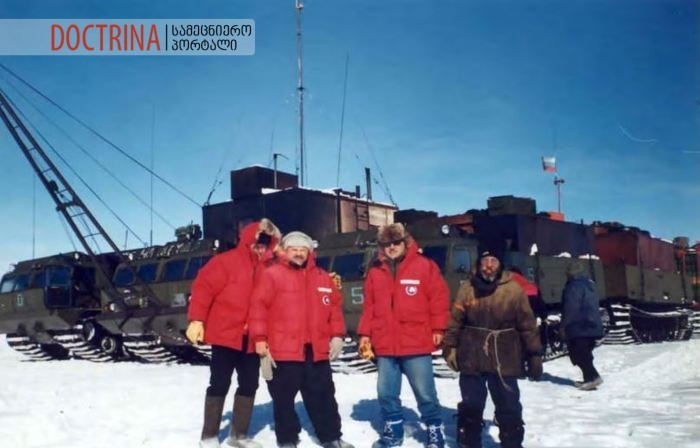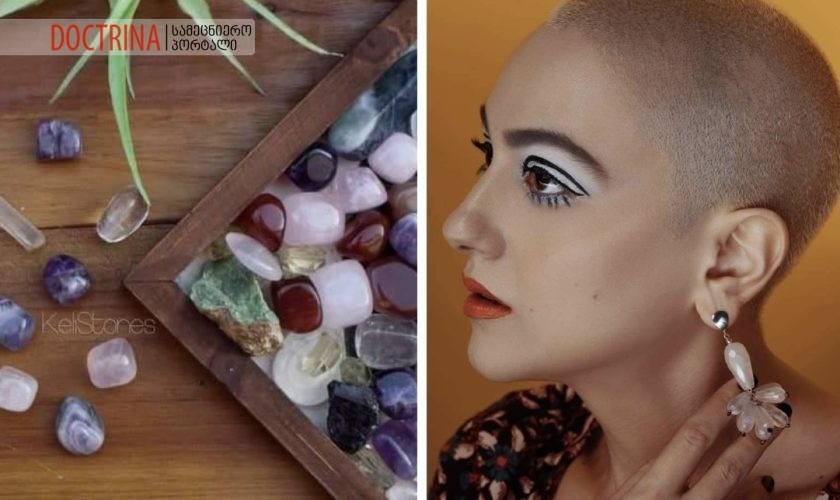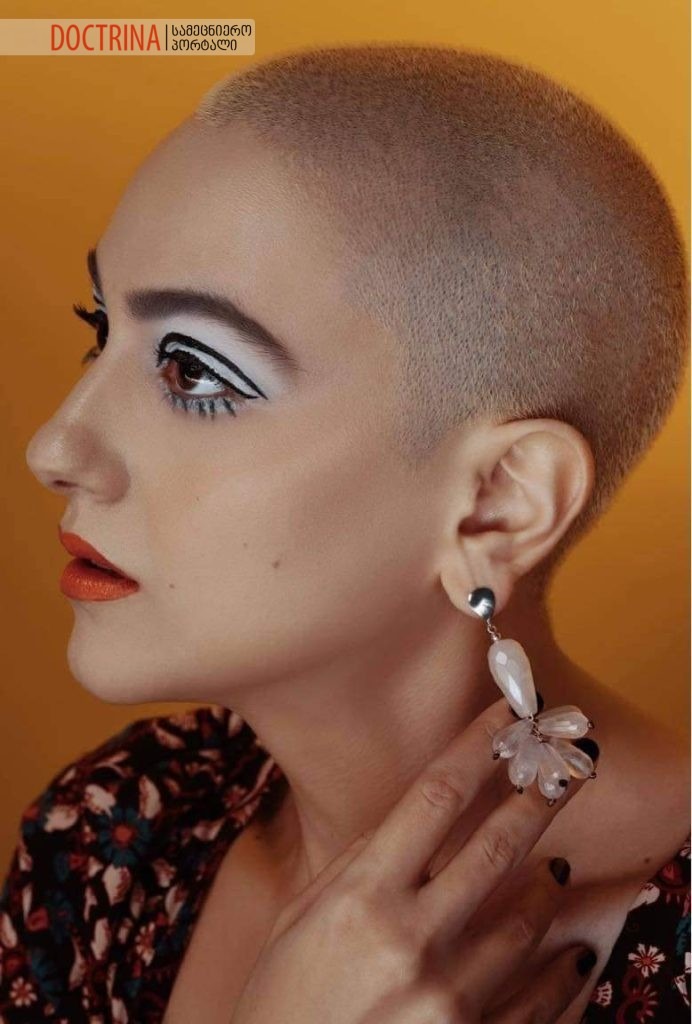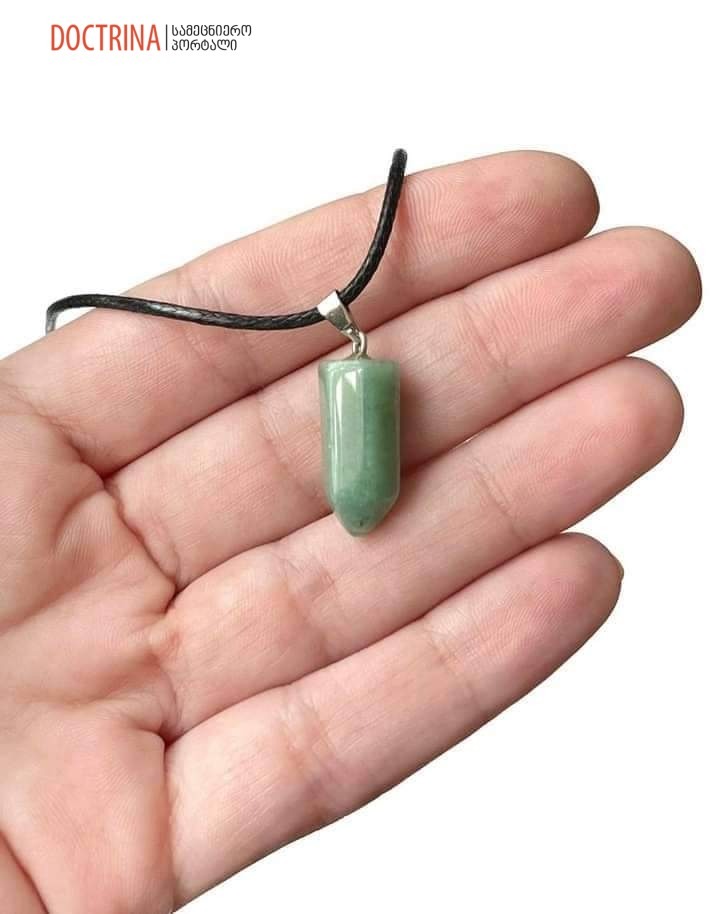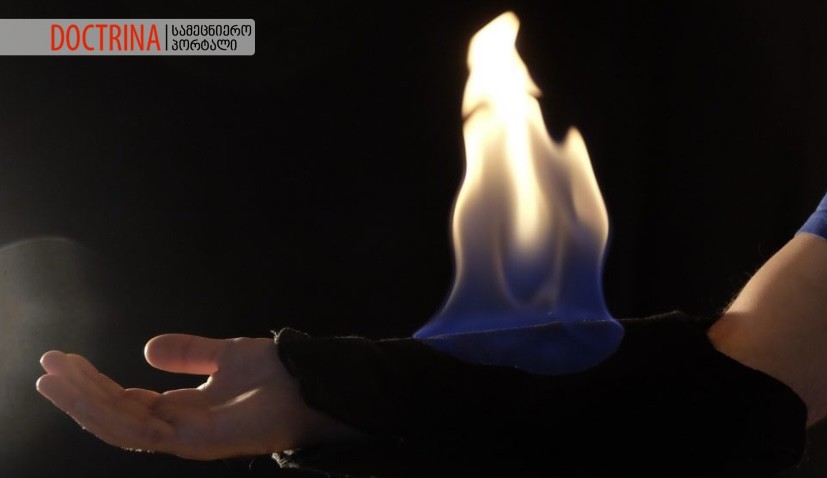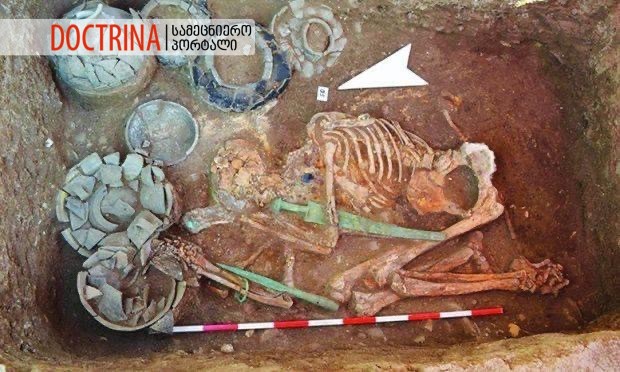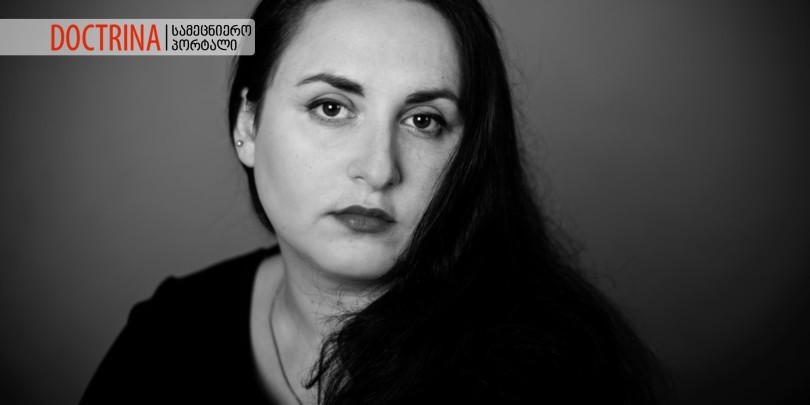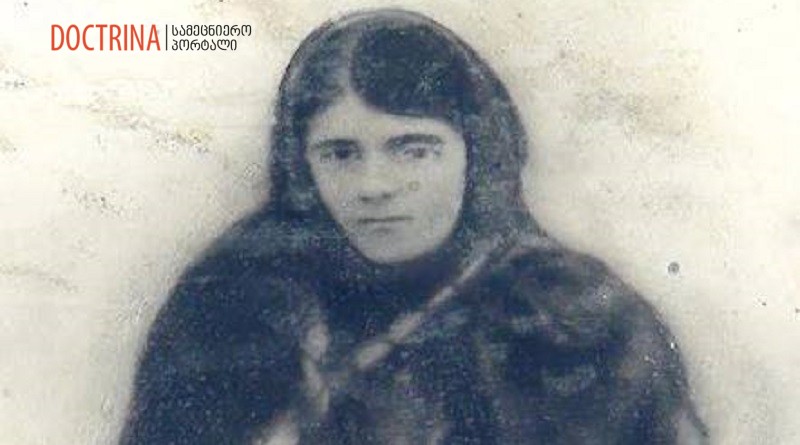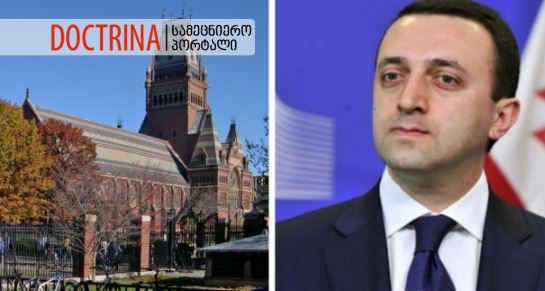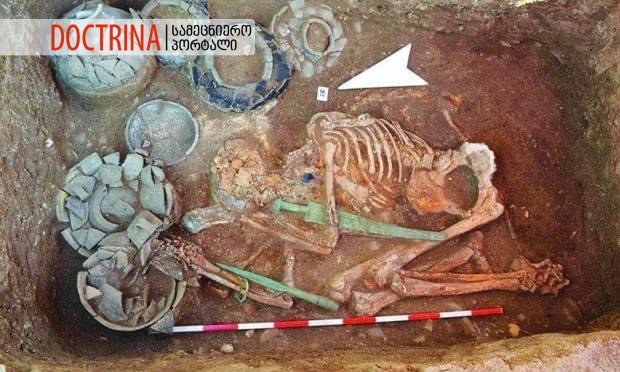Georgian scientist Vladimer Papitashvili is the Program Director of Astrophysics and Geospace Sciences at the US National Science Foundation. Georgian scientist is responsible for ongoing geospace surveys or astrophysics programs at the South and North Poles of the Earth.
After completing his master’s degree in geophysics, Vladimer Papitashvili continued his studies in Yakutsk, Siberia, where he studied permafrost electrical properties. In 1975 he joined Moscow Institute of Terrestrial Magnetism, Ionosphere and Radio Wave Propagation, where the Georgian scientist realized that he wanted to visit Antarctica.
Vladimer Papitashvili visited the continent for the first time in 1983, where he spent five days at Russian stations. In Antarctica, the valley located on Victoria Land Trans-Antarctic Mountains was named after Mr. Vladimer.
Vladimer Papitashvili says he has visited the Arctic and Antarctica about 30 times. In 1991, his American colleagues invited him to NASA Goddard Space Flight Center for a year, however, after the collapse of the Soviet Union he could not return back and moved to the University of Michigan to work. During his time at NSF, Vladimer became the Director of the Antarctic Astrophysics and Geospace Sciences program, where he has been working since 2002.
According to the Georgian scientist, they currently have geospatial instruments at the South Pole, using which they observe the atmosphere, seismic processes, snow and ice. The pandemic has impacted the scientists’ work, in particular, in the past, they used to visit Antarctica almost every year, but this year they had to cancel almost the whole summer season.
GEORGIA
Georgian artist in Los Angeles – The most successful businessman is the one who loves his work
What happens if we make a decision to do our favorite business outside the homeland, what difficulties appear and what are the key details that must be taken into account – looking properly into these issues determines the success of a manufacturer.
Marie Dua is developing the brand KeliStones. Initially, she started this business in Georgia. However, one thing led to another, and the result is that she is now creating her collections in Los Angeles.
“Doctrina.ge” has interviewed Marie Dua about her experience.
Would you tell us in detail about your whereabouts and your work?
Currently, I am in Los Angeles, California. I work on KeliStones brand, creating different collections and sending most of them to Georgia. My items are exhibited in several stores in Los Angeles. I have close contacts with local artists and artisans and plan to collaborate with them on various interesting projects in the future.
What were the key difficulties you, as an emigrant, faced when taking your first steps?
When I came to Los Angeles, it was quite difficult for me to adapt to it. Everything was different – food, environment, people, air. It took me a year to adapt to these changes. Even today, there are things that still amaze me.
Why did you decide to have your own business in a foreign country?
I started my work in Georgia. I was 18 when I created the Kelistones blog and started writing about stones. Since then, the demand for stones and jewelry increased and, step by step, I started creating jewelry. Years later, when I was given the chance, I decided to expand the business abroad.
What would you advise those people who want to have their own business outside Georgia and make efforts to do it?
First of all, I would advise them to choose a job that they love and like to work on. If we don’t enjoy our work, just making efforts won’t get us very far. The most successful businessman is the one who loves his work. Moreover, quality and customer relations are appreciated in any country.
Translation: Tamar Tabatadze
The Hall of Young Scientists & Analysts – “Doctrina”
The fire-resistant uniform for firemen that has been developed in Georgia, can be sold in the US
market for $4000-5000 each, Vamekh Kherkheulidze, co-founder of the Elven Technologies company
that is involved in the implementation of the project, said in his interview with Business Partner
program.
According to Kherkheulidze, two different uniforms : one of them fully fireproof and another – relatively
light, non-fireproof uniform are intended for the US market. Both of them are currently undergoing
laboratory, field testing, which is due to be completed by the end of 2022. Kherkheulidze explains that
the product needs to be patented and licensed.
"In order to start selling them in the American market, to reach the Company X, which will buy a license
from us, we will need to invest USD 2-5 million. We have to attract investors and get funding
Kherkheulidze told Business Partner.
According to him, the Georgian market is not interested in the product developed by Elven
Technologies, because they wear middle-class uniforms and there is an unrealistic difference between
the prices.
Translation: Tamar Tabatadze
The Hall of Young Scientists & Analysts – “Doctrina”
Genome of human, wolf and bison, living 25 000 years ago, found in Satsurblia cave in Georgia
The study of the sample discovered in the Satsurblia Cave, Tskaltubo Municipality of western Georgia has revealed the genomes of humans, wolves and bisons living 25 000 years ago.
Material precipitated on the bottom of the cave for millennia has preserved the ancient human genome, or genetic material stored in the body cell. The research continues in an active manner, but the analysis revealed traces of a woman who lived 25 000 years ago, during the Last Glacial Period.
It is noteworthy that apart from human, wolf and bison genomes, stone tools were also found in the Satsurblia cave, which are more durable than bone and are a source of additional information. We can assume that the cave had been actively used by humans for a long time.
The study is led by a researcher and archaeologist from the University of Vienna and although only a small fragment of the female genome has been recovered, researchers could identify that she was a member of the previously unknown group of modern humans. This human group is currently extinct but took part in defining the genome of
certain part of current population of Europe and Asia. As for the wolf genome, it turned out that the wolf species changed completely during the Last Glacial Period, about 11,000 years ago. The bison genome found here has
revealed that it matches the genes of bison currently living in Europe and Asia, but not in America. It turns out that this genome has divided into two branches.
Translation: Tamar Tabatadze
The Hall of Young Scientists & Analysts – “Doctrina”
Georgian-born Judoka Luka Mkheidze won the Bronze Medal in 60kg judo to give France its first medal at 2020 Tokyo Olympic Games. A bronze medal went to Luka after he defeated a South Korean rival.
“Olympic Games create magnificent human stories. Georgian-born Luka Mkheidze, who became a citizen of France in 2015, won the first medal for France in Tokyo. The country, which he chose, is proud of him,” President of France, Emmanuel Macron tweeted reacting to Luka Mkheidze’s victory. Apart from the mentioned success, the local media outlets report about the difficulties that Mkheidze faced after fleeing Georgia with his parents shortly after the 2008 war and went to France, where he received the status of a political refugee and then obtained the French citizenship. It took years.
"What made me want to fight, not to give up, is my career, my family. They're the
ones I'm fighting for as well, and for me too, of course," – Luka Mkheidze was
quoted by France Info as saying.
Luka Mkheidze was born in Tbilisi in 1996 and he had a long way to go before he got the French citizenship in 2015 and found his place in the French judo. Luka got interested in judo at a young age, and although his father inspired him in this regard, the judoka emphasizes that he got involved in sports on his own will. According to the French newspaper "20 Minutes", he arrived at one of the local clubs in Georgia at the age of 5, but the coaches did not accept him due to his height.
For the next two years, Luke pursued other sports – swimming and basketball – and at the age of 7 he put on a kimono and achieved success when he was still very young. However, after the 2008 Russia-Georgia war, at the age of 12, Luka Mkheidze had to leave his homeland with his parents. Luke and his family traveled to Poland, where they spent 8 months. After the local government rejected their application, Luka, at the age of 14, arrived in France with
his parents and received the status of a political refugee. For 1 year, the Mkheidzes lived in a hotel in one of the suburbs of Paris. The newspaper "20 Minutes" notes that one of the turning points in his career, as a
judoka, was the family's decision to move from Paris to Normandy, to the city of Le Havre. Luka remembers that his club asked the mayor of the city, Edward Philip, to help him achieve his goal and grant him citizenship.
"Usually, this [procedure] takes a long time, but a few months later I received a letter from Edward Philip that I would soon receive citizenship. Soon, it was confirmed by the official letter," Luka told Le Parisien.
After that, Luka returned to Paris and more and more successfully continued his avorite activity.
According to French media reports, Luka was very lucky when the 2020 Tokyo Olympics were postponed due to a pandemic crisis. Otherwise he could not join the French delegation as another athlete had been nominated in the relevant category.
Mkheidze was picked to compete at an Olympics, in April of the current year, after winning a silver medal at the European Championship. "I arrived here when I was very young. It has not been easy to adapt to a different culture, to learn a very complex language, but I think I am well integrated and I feel great here," Luka told French media.
Translation: Tamar Tabatadze
The Hall of Young Scientists & Analysts – “Doctrina”
Nino Kharatishvili's new novel DAS MANGELNDE LICHT (The Lack of Light) has not yet been
published in German, but the book has already been copyrighted by the well-known and
authoritative American publishing house HarperCollins Publishers. This is the first case when a
book by a Georgian (German-speaking) author was published in America. Nino's new novel will
soon start its journey in the world.
The news was announced by Nino's German publishing house on the opening day of the
Frankfurt Book Fair, at the traditional meeting of Nino Kharatishvili's European publishers.
"I know that I have to arrive in America as well. It it is planned to hold meetings, to make plans. I
do not know the details yet. I'm returning back from Frankfurt very confusedly,”- Nino, who was
heading to Berlin, told us.
Entering the American book market is difficult even for Germany, so Nino's happiness has
tripled, and it is already known that this will be a long-term collaboration, which will not end after
the publication of this particular book.
Translation: Tamar Tabatadze
The Hall of Young Scientists & Analysts – “Doctrina”
Karajlar is a small village near the border with Azerbaijan. The village is inhabited mainly by Muslim Azerbaijanis, life here is relatively quiet, men enjoy traditional tea, and women are busy with household chores.
One hundred years ago this place was the cradle of the development of democracy. Historian Irakli Khvadagiani discovered written sources, saying that in 1918 a Muslim woman was elected as a deputy.
The Matriarchal History of Karajlar
The woman’s name was Farikhan Sofieva and not much is known about her, including her date of birth. The only thing we know is her signature on official documents, a photograph that supposedly shows her, grave and memories of the locals. They recall that Farikhan carried a weapon and smoked tobacco, which was categorically unacceptable for the Azeri patriarchal society at that time. However, the importance of Farikhan’s history, goes beyond the scale of a small quiet village and clearly demonstrates the development of the first half of the 20 th century.
In 1918, Georgia took bold steps in the development of modern democracy, but three years later the Bolshevik Party destroyed everything. In the wake of the First World War and the Bolshevik Revolution, the country declared independence and decided to create a social-democratic, multi-ethnic region. In a newly liberated country, minority rights, freedom of religion, and the voting rights were to be protected by the constitution. They launched holding elections as the first steps in fulfilling this goal.
“Politicians think that real democracy lies on villages. If a new system is not established at the lowest level, then democracy will not enter Georgia,” said Khvadagiani, who is researching Georgia’s Soviet past.
While collecting information about local rulers of democratic Georgia, Khvadagiani accidently discovered name of Farikhan. The document described in detail the meeting held in Tbilisi (Georgia), which was attended by representatives of various regions, including the village of Karajlar.
“When I saw her name, I was surprised,” Khvadagiani said, adding that initially he saw Farikhan’s name in the electoral list and then in a Russian-language document confirming that Sofieva was the village’s official representative.
The document kept in the archives describes that Sofieva was an independent candidate and competed with all Georgian political parties. Her victory confirms that she enjoyed great authority among the villagers.
The system of participation in the general elections in 1918 was not new for Georgia. In post-imperial Russia, women used to run for offices- while New Zealand allowed women to vote as early as 1893. However, Georgia was distinguished by the fact that the number of Muslims was so large that they could have a representative of their own community. Azerbaijan declared independence in 1918 and was the first Muslim country to hold general elections. However, after the elections, women were not elected to any position. In the 1919 parliamentary elections in Georgia, five women and three men were elected.
It can be said that Sofieva was the first Muslim woman around the world to be elected as an official.
Of course, until now, many Muslim women have had political power and even held some not-so-important positions, but Sofieva was the first to be elected by the people on their own will.
This remarkable event has not gone unnoticed by the Georgian media. In 1918, the magazine Public Affairs celebrated Sofieva’s victory. It should be noted that the newspaper supported the Socialist Federation, the party which was defeated by Sofieva.
“According to media, a Muslim woman’s election was a huge step towards democracy and cultural diversity, which, unfortunately, was soon forgotten, even in the village itself, because the subsequent horrors completely destroyed the chance for democracy.”
Sofieva traces
The traces of Sofieva’s life have been left in Karajlar. At a local school that has recently been restored, her last name is posted on a plaque. Khvadagiani arrived in the village to find Sofieva’s surviving relatives and collect addition information about her biography. As soon as the door to the school principal’s room was opened, it became clear that he would not have to search for long.
Beg Zadr Sofiev is a school history teacher and a grandson of Farikhan’s brother. Although he did not know Farikhan personally, he still feels close inner ties to her.
“All elders in the region know her name and have heard everything she has done. She was a very active woman, helping everyone. Although people were living in horrible conditions she still did not refuse to help anyone,” said Beg Zadr Sofiev, who compared her to Robin Hood.
The teachers gathered in the room agree with him, adding:
“Farikhan Sofieva was very brave and had a different character. She was smoking tobacco. she was the dominant figure even at the meeting of men.”
Currently, in the community of Azerbaijanis, this is an almost unbelievable behavior. Data collected in 2017 show that girls are married before the age of 16 and can no longer continue their education. Gender discrimination is the norm in Azerbaijan and giving political power to women is almost unimaginable. Even smoking a cigarette is considered unacceptable for a woman.
Memories about Farikhan
She was the only girl from a family with 9 children and she commanded her brothers in various public affairs.
There is the house of Rakhshanda Sofieva, who is the widow of Farikhan’s nephew, at the outskirts of the village. The 80-year-old woman is the only persin who has met Farikhan in person and remembers how she won the elections.
“She was a man in the body of a woman. Everyone was afraid of her, everyone in the village sought her advice. Her word was law and no one dared to disobey,” she recalled.
Rashkanda noted that Farikhan had authority even following the Bolshevik Revolution. She played the role of a minister in the village, and like a mullah, she used to read Quran during wedding and funeral ceremonies. Farikhan collected donations for poor people, and wherever she went, she always carried a German revolver with her. No one was able to bring her to his knees, not even the Soviet Union.
Life and Survival in the Soviet Union
Unfortunately her brothers were not so lucky.
Under Stalin’s leadership, in 1937, five of her eight brothers were executed.
“They were rich, so they became targets,” said Rakhshanda. She remembers how the brothers were taken and killed.
Historian Khvadagiani explains that execution was typical of the Stalin era.
“It is difficult to find out why they were punished. Archival materials mention just death penalty. They are said to have been enemies of the people. However, the death penalty did not need much explanation. ”
The bloody massacre put an end to Farikhan’s public life, and Farikhan spent the rest of her life protecting her family. Children of the “people’s enemy” were victims of mass discrimination and were often exiled. Those who escaped being sent to a foreign country were barred from pursuing higher education or holding high positions. After the death of her brothers, Farikhan raised her nephews like own children.
“In fact, she became their mother, lived for them and supported them to receive a higher education. Her nephews became doctors, teachers and high-ranking officials. “Farikhani was such a cool woman,” Rakhshanda recalled.
Farikhan’s great nephew Beg Zadr is praying at her grave. This part of the cemetery is for the Sofievs, and some of the tombstones are decorated with photos. The tombstone of Farikhan is square in shape. There is a large brick mausoleum built by her nephew. There is also a memorial on the site in honor of her dead brothers as their bodies are laid to rest in an unmarked cemetery.
Farikhan died in 1953 of a heart attack after hearing about the death of one of her nephews. Stalin died in the same year. Although Farikhan was almost the only Muslim woman in the world to win the elections on people’s will, she died in a country where there was no freedom of choice or religion. She is known today as “Man Farikhan” and not as “democratically elected leader Farikhan”.
Even her own grant nephew says that it is impossible to elect a woman democratically today because it is unacceptable for their culture. But Rakhshanda, who knew Farikhan personally, thinks quite differently:
“Nothing will come out without education. If a woman is educated like Farikhan was, then nothing is impossible for her.”
Translation: Tamar Tabatadze
The Hall of Young Scientists & Analysts – “Doctrina”
At the initiative of Georgian Prime Minister Irakli Gharinashvili, Qartvelology Studies will be launched at Harvard University Davis Centre. The first lecture will be delivered by Irakli Gharibashvili in February 2022.
At the inaugural address Minister of Education and Science of Georgia, Mikheil Chkhenkeli assessed the fact as “historical.”
“Today we have witnessed a truly historic event. At the initiative of the Prime Minister of Georgia, Irakli Gharibashvili, the Davis Center at Harvard University is launching Qartvelology Studies. This is extremely important for our country. This is the historic event, taking place for the first time in American history. Within the framework of the program, students will have the opportunity to get acquainted with the history, culture, literature and politics of Georgia. I would also like to highlight the scientific- research activities that will be conducted under the auspices of this program. The program is opening in February 2022 by Prime Minister of Georgia Irakli Gharibashvili, who will deliver the first lecture,”- said Mikheil Chkhenkeli.
Translation: Tamar Tabatadze
The Hall of Young Scientists & Analysts – “Doctrina”
Georgian Student at Medical Academy in New York – Finalist in North American International Culinary Competition
Culinary is not just about cooking. It is a real art and every detail must be strictly selected. A good chef must select details while cooking like an artist chooses colors for a painting. In order to cook tasty dishes, surprise everyone, we need to strictly follow the rules.
Doctrina.ge has interviewed amateur chef, Ketevan Cherkezishvili about her hobby.
At what age did you learn to cook?
I have been cooking since childhood. I got my love for cooking from my mother and grandmothers, who all were the best cooks. Guests often visited us and we hosted them. My mother cooked tasty food and even now, my sister and I always use her recipes notebooks for cooking.
Is Culinary just a hobby for you? What are your plans for the future?
Yes, cooking is just my hobby. I have no plans in this regard. The pandemic started and therefore I find time to cook at home. I had some plans in the past and several famous chefs helped me and they give me competent advises even now. I am a dentist by profession and currently, I am focused on it.
As we know you are a finalist in a culinary competition, how important are such competitions for a cook?
Yes I was among the 9000 participants in the North American International Competition and appeared among the top five , then I dropped out. I can not say that it is very important, or that it has made a significant influence, but it is somehow good, it wakes you up.
As we know you live in the US, how often do you prepare Georgian dishes and which is your friends’ favorite one?
Yes, I live in America with my husband. Here I studied at the Medical Academy in New York. At the same time, I was working in one of the food facilities. Like all American students living here, with such a busy schedule. In accordance with the FDA regulations here, I had to have a diploma-license from the Food Safety Administration. My friends like all Georgian dishes prepared by me. I would choose Kakhetian Mtsvadi and Chakafuli.
Do you plan to open a “corner” of Georgian cuisine in the US? What are your plans for the future?
No, I do not have any plans in this regard; I have completely switched to my profession, now I make plans only based on it. My father and husband help me in doing it.
Translation: Tamar Tabatadze
The Hall of Young Scientists & Analysts – “Doctrina”
25 000-year-old female genome found in Georgia belongs to previously unknown human population
The study of the sample discovered in the Satsurblia Cave, Tskaltubo Municipality of western Georgia has revealed the genomes of humans, wolves and bisons living 25 000 years ago.
Material precipitated on the bottom of the cave for millennia has preserved the ancient human genome, or genetic material stored in the body cell. The research continues in an active manner, but the analysis revealed traces of a woman who lived 25 000 years ago, during the Last Glacial Period. Although we do not know much about her, this woman is an important scientific achievement.
The study is led by a researcher and archaeologist from the University of Vienna, and although only a small fragment of the female genome has been recovered, researchers could identify that she was a member of the previously unknown group of modern humans. This human group is currently extinct but has contributed to the development of the present-day Europeans and Asians; This fact became known after her genome was compared to the genomes of modern humans.
“Our findings provide new insights into the genetic history of three species of the late Pleistocene and show that direct sequencing of DNA in sediments, without targeted enrichment, can give us genome-scale data on ancestry and phylogenetic relationships,” the researchers write.
It is noteworthy that in addition to human, wolf and bison genomes, stone tools were also found in the Satsurblia cave, which are more durable than bone and are a source of additional information. We can assume that the cave had been actively used by humans for a long time.
As for the wolf genome, it turned out that the wolf species changed completely during the Last Glacial Period, about 11,000 years ago. The bison genome found here has revealed that it matches the genes of bison currently living in Europe and Asia, but not in America. It turns out that this genome has divided into two branches.
Translation: Tamar Tabatadze
The Hall of Young Scientists & Analysts – “Doctrina”



